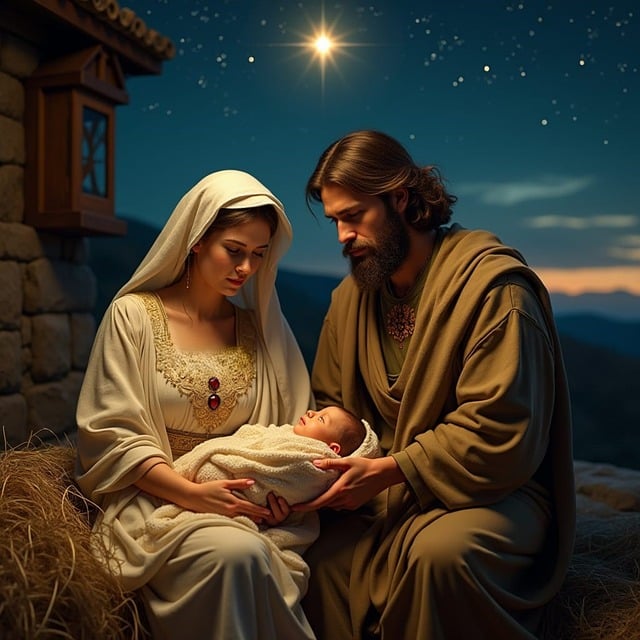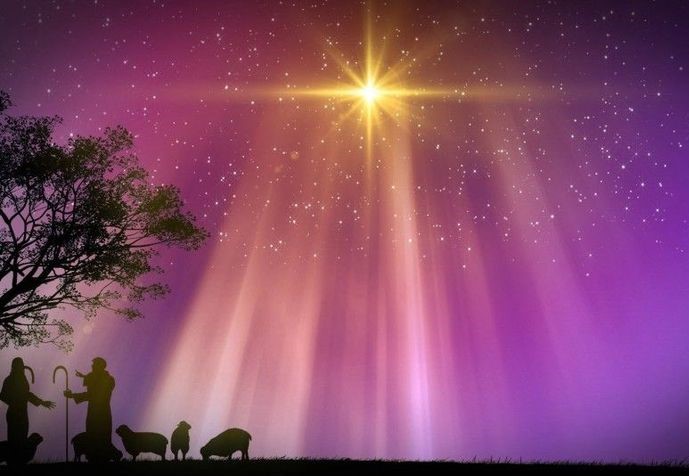God’s Love Dwells in Us
God’s Love Dwells in Us Excerpt from Red Rock News – December 27th, 2024 Rev. Dona Johnson |December 29, 2024 The first words of the Gospel of John 1:1-14 are a text used during the Christmas season. And for good reason. John’s opening proclamation lays the foundation for who Jesus is. John begins his account of Jesus with these words: “In the beginning was the Word, and the Word was with God, and the Word was God” (John 1:1). John wrote his gospel for everyone—both Jews and non-Jews. As one of Jesus’ 12 disciples, John writes with a great deal of credibility and was an eyewitness to the life and times of Jesus. Brennan Manning once said, “If John were to be asked, “What is your primary identity in life?’ he would not reply, “I am a disciple, an apostle, an evangelist, an author of one of the four gospels,” but rather, “I am the one Jesus loves.” Yes, John was both a disciple and apostle. Yes, he was one of the four evangelists. He also wrote 3 of the epistles and Revelation. But, if Manning is right and I think he is, John would want none of that on his tombstone, Instead, chisel the epitaph: “Here lies the body of the one Jesus loved.” The “one who Jesus loves”—when you think about it is a profound declaration. Are you feeling loved today? Did you wake up this morning with the joy of Jesus’ love in your heart? When you looked in the mirror this morning, did you say to yourself, “I am the one Jesus loved.” When you look into the faces of others, say, “Here is the one Jesus loves.” That is truly who I am. And that is who you are. We are not so much defined by what we do but who we are loved by. And God loves us. Jesus loves us so deeply that at times it is very difficult for us to grasp. Why? Probably because we’ve never experienced this type of love before. Deep and abiding love may scare us away. Maybe we don’t love ourselves, maybe our critical voice talks over the goodness and giftedness of God’s love within us. Maybe we have attachment issues with God’s love, and everytime we try to get close to him, or get close to others we sabotage our efforts. Maybe we’re afraid if we trust God, he will somehow abandon us like our parents did or other people who betrayed us. Some of us in order to feel connected to God stay in our heads with God and only intellectualize his promises. His promises thus, never reach our hearts. And thus, live in between doubt and love—not fully at peace, restless. But, to know in your heart that you are without a doubt loved with great affection by the very God who created the universe, is something marvelous to encounter. It is life-changing. If you want to know what real love looks like, look no further than the birth, life, death and resurrection of Jesus. If you want to know who God is, look at Jesus. Jesus reveals the true character of God— one of love, mercy and forgiveness. John declares the Word was God. He was not saying Jesus is identical with God, he was saying that Jesus was so perfectly the same as God in mind, heart and in being that in Jesus we see perfectly what God is like. John continues with words also found in Genesis “light” (1:4). Again in verse 1:9, John picks up the theme of Christ being light. “The true light that gives light to every man was coming into the world.” What this means for Christians is that they don’t walk blindly in this world but God lights a path ahead of them, and he removes the darkness of sin and death from their lives. Thus, life in Christ is lived on a higher plane because of his unfailing and eternal love for them. Christians are no longer crushed by the weight of the law but we are saved by God’s love, his grace through faith in Jesus (Eph 2:8). For no Christian can perfectly live out the law. Jesus, a new creation is not brought about by some unknown being but through the very Word of God. And that is how God reveals himself to mankind through his Word. When a person speaks words, it reveals what that person is thinking, his or her character and beliefs. So, the Word of God are God’s thoughts uttered out loud, a window into his purpose, personality and divine nature. Thus, the knowledge of God that the Word brings is not merely information to debate or pontificate—it is Life. In order for God’s power to be made known, on the cross and the empty tomb, God entered time in the birth of Jesus, and that is still the miracle we proclaim today—God’s Word became flesh, in the Christ child to dwell intimately, to love, walk with and to suffer with his people. Among all the world’s wealth and treasures, this is the greatest gift anyone can be given—God loves you. Merry Christmas! Rev. Dona Johnson |December 29, 2024
God’s Love Dwells in Us Read More »





